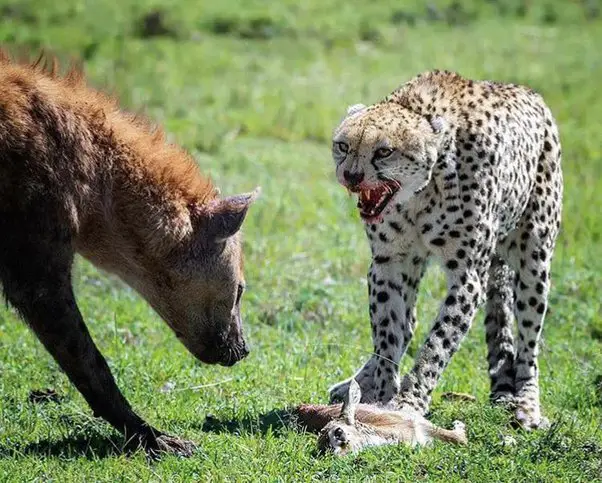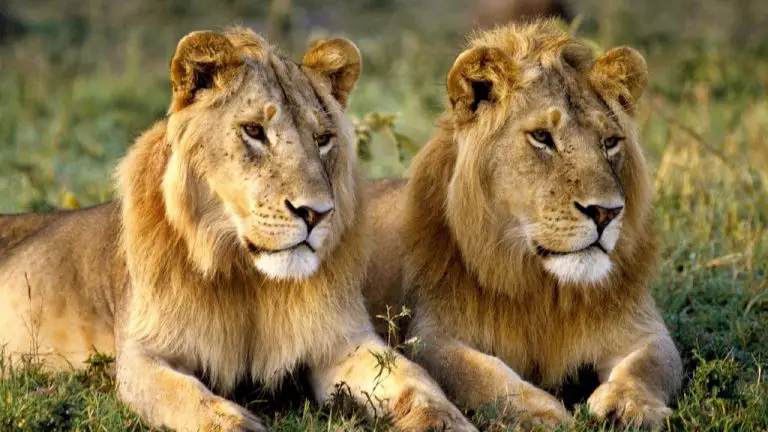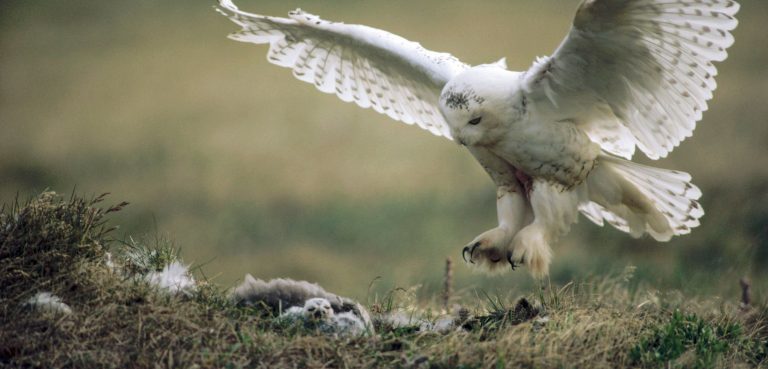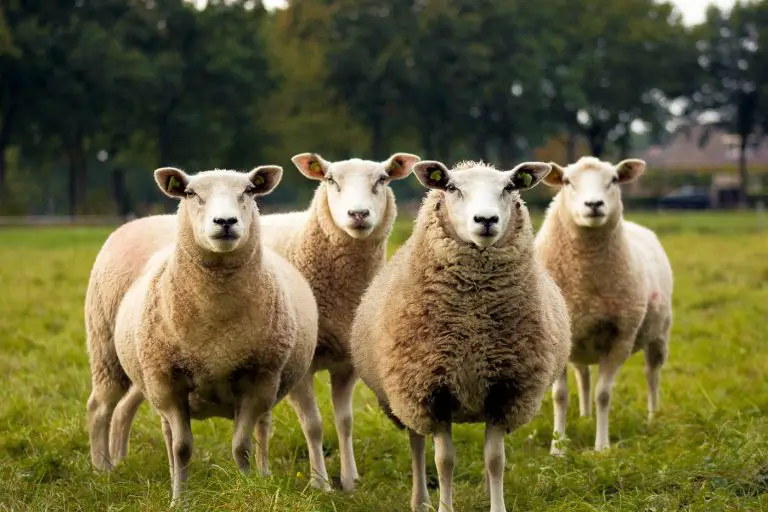Why Are Cheetahs Scared Of Hyenas?
Cheetahs are scared of hyenas due to hyenas’ larger numbers and aggressive behavior. Hyenas are social predators that often gang up on cheetahs, leading to intimidation and potential injury or death for the cheetah.
Cheetahs, known for their incredible speed and agility, are undeniably formidable hunters in the animal kingdom. However, these impressive felines can find themselves filled with trepidation when encountering another powerful predator: the hyena. The fear that cheetahs hold for hyenas stems from several crucial factors.
Firstly, hyenas typically roam in larger packs, presenting a more significant threat in terms of sheer numbers. Secondly, hyenas showcase a highly aggressive demeanor, latching onto any potential advantage over rivals during a hunt or territorial dispute. This combination of a larger pack size and aggressive behavior ultimately unnerves cheetahs, leading to a sense of vulnerability and a natural aversion towards engaging with these formidable adversaries.
The Fear Factor
It is no surprise that cheetahs view hyenas as formidable opponents. These sleek and swift big cats have evolved over time to develop natural instincts and survival strategies to protect themselves from their rivals.
Competition for food plays a significant role in the fear cheetahs have for hyenas. Both species rely on hunting the same prey, such as antelopes, zebras, and wildebeests. However, hyenas are notorious for their scavenging abilities, often stealing kills from other predators, including cheetahs. This drives the cheetahs to be cautious and avoid confrontations.
Furthermore, the predator-prey dynamics between cheetahs and hyenas contribute to the cheetahs’ fear. Hyenas are larger and more powerful, constituting a greater threat to the smaller and fragile cheetahs. Cheetahs are aware of this power imbalance and choose to retreat when faced with hyenas to avoid injury or even death.
The combination of competition for food and the power difference between the two species results in cheetahs being cautious and afraid of encountered hyenas. These factors have shaped their behavior over time, ensuring their survival in the dynamic African ecosystem.
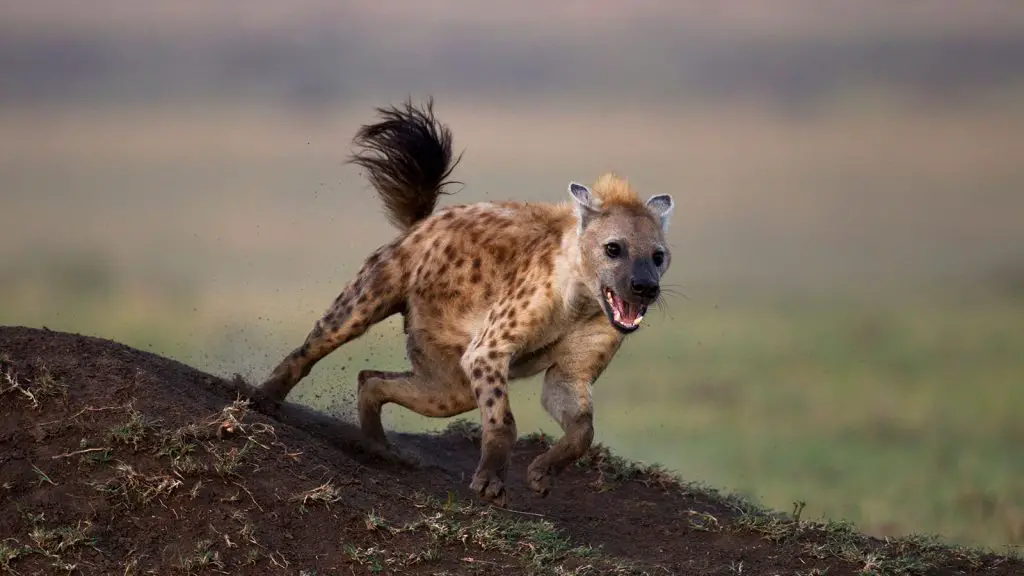
Anatomy Of Fear In The Wild
Cheetahs, known for their incredible speed and agility, surprisingly experience fear when it comes to encountering hyenas in the wild. This fear can be attributed to several factors. Firstly, cheetahs’ physical disadvantages play a significant role. Unlike hyenas, cheetahs are smaller in size and lack the muscular strength that hyenas possess. Additionally, cheetahs have a slimmer build and less powerful jaws, making them more vulnerable during confrontations.
Furthermore, hyenas’ dominance in strength and numbers poses a constant threat to cheetahs. Hyenas are highly social animals, often forming packs. This pack mentality allows them to overpower solitary cheetahs, taking advantage of their numerical advantage and brute force. When a cheetah faces multiple hyenas, its chances of survival diminish significantly.
Moreover, injuries sustained during encounters with hyenas can also impact cheetahs’ hunting abilities. Weakening or disabling a cheetah’s leg, for example, can severely hamper its ability to run and chase down prey. This not only puts the cheetah at a disadvantage when hunting but also leaves it more vulnerable to other predators.
A Tale Of Speed Vs. Endurance
Cheetahs and hyenas are two distinct predators that roam the African savannah. Cheetahs, known for their incredible speed, are built for quick kills. They rely on their burst of speed to catch their prey before it can escape. On the other hand, hyenas are known for their persistence in scavenging and hunting. They have the endurance to chase down their prey for long periods of time.
While cheetahs are fearful of hyenas, it is not due to their strength or size. Instead, it is the cost of a confrontation that cheetahs try to avoid. Hyenas are known to be aggressive scavengers, and a confrontation with them can result in the loss of a kill. Cheetahs rely heavily on each successful kill, as they cannot defend their kills against other opportunistic predators like hyenas. Hence, cheetahs prefer to use their speed to escape rather than engaging in a potentially costly confrontation with hyenas.
The Social Structure Of Hyenas
Hyenas have a complex social structure that contributes to their collective strength as a group. They live in clans, which can consist of up to 80 individuals, and are led by a dominant female called the alpha. The clan members work together to defend their territory, which can be as large as 80 square miles, from other clans and predators. This territoriality is crucial for their survival, as it provides them with access to food and water resources.
Cheetahs, on the other hand, are solitary animals and do not have the benefit of a social group for protection. They are known for their incredible speed, but they lack the strength and power of hyenas. Consequently, cheetahs are often cautious and wary of hyenas, as they know that they are no match for a group of them.
Hyenas, with their numbers and collective might, pose a significant threat to cheetahs. The hyenas’ ability to work together in a coordinated manner gives them an advantage when it comes to hunting, scavenging, and defending their territories. Cheetahs, being solitary hunters, prefer to avoid any confrontations with hyenas and typically retreat if they sense the presence of these social predators.
| Hyenas | Cheetahs |
|---|---|
| Live in clans | Solitary animals |
| Strong collective defense | Lack group protection |
| Large territories | Prefer smaller territories |
| Coordination in hunting | Solo hunting strategy |
Survival Tactics
Cheetahs have developed several survival tactics to avoid confrontations with hyenas. One effective strategy is tactical retreats. Cheetahs are aware that hyenas are powerful predators and have a larger pack size, so they prefer to avoid direct confrontations. By retreating, cheetahs can assess the situation and plan their next move wisely.
An important element in cheetahs’ survival is the element of surprise. Rather than engaging in a prolonged fight with hyenas, cheetahs use their incredible speed to escape quickly. The element of surprise catches hyenas off guard, giving cheetahs a chance to retreat safely.
Risk management plays a vital role in the lives of cheetahs. They carefully analyze their surroundings and make calculated decisions to minimize risks. If a cheetah spots hyenas nearby, it will choose to avoid the area altogether or maintain a safe distance to prevent unwanted conflicts.
| Tactical retreats and the element of surprise | Risk management in the lives of cheetahs |
|---|---|
| Tactical retreats allow cheetahs to assess the situation | Cheetahs use their incredible speed to escape quickly |
| The element of surprise catches hyenas off guard | Cheetahs carefully analyze their surroundings |
| Cheetahs make calculated decisions to minimize risks |
Food Chain Realities
Hyenas and cheetahs coexist in the African savannas, but the competition for prey is fierce between these two predator species. Hyenas are known for their scavenging behavior and opportunistic hunting, which makes them direct competitors of cheetahs. The ecological standoff between hyenas and cheetahs stems from their different hunting strategies and abilities.
While cheetahs are known for their incredible speed and agility, allowing them to chase down swift prey such as gazelles, hyenas rely on their strength and pack hunting skills to take down larger animals. This difference in hunting techniques creates intense competition for prey resources in the African savannas.
Furthermore, the impact of hyenas on cheetah population dynamics is significant. Hyenas often steal cheetah kills, which can lead to food scarcity for cheetahs. This, in turn, puts additional pressure on cheetahs to find and secure their next meal, increasing their vulnerability to other predators and affecting their overall population size.
Life In The Shadow Of Giants
Cheetahs, known for their speed and agility, often find themselves in the precarious position of sharing their habitats with larger predators, such as hyenas. To avoid conflict, cheetahs have developed adaptive behaviors that help them steer clear of potential danger.
One such behavior is their ability to assess risks and make calculated decisions. Cheetahs are highly observant and use their acute senses to detect any signs of danger, including the presence of hyenas. When hyenas are detected, cheetahs strategically retreat from the area to avoid any potential confrontation.
In addition to their retreat tactics, cheetahs also seek out safe havens within contested territories. These havens may include areas with dense vegetation or elevated terrain that offer a vantage point to survey the surroundings and spot any potential threats.
By employing these adaptive behaviors, cheetahs are able to coexist with larger predators like hyenas, allowing them to continue thriving in their natural habitats.
The Silent Struggle
The Silent Struggle: Cheetahs face a silent struggle when it comes to the presence of hyenas. This struggle goes beyond the physical threat of predation. It delves into the emotional stress experienced by cheetahs and the repercussions it has on their physical well-being.
The unseen battle for survival beyond predation: Hyenas are known for their scavenging abilities, which can be intimidating for cheetahs. The constant need for vigilance and the fear of losing their hard-earned kill creates emotional stress for cheetahs. This stress can lead to various physical repercussions, including hormonal imbalances, compromised immune systems, and a decrease in reproductive success.
Resilience in the face of adversity: Despite the challenges brought on by hyenas, cheetahs have shown remarkable resilience. They have adapted their hunting strategies, employing stealth, speed, and agility to minimize the risk of confrontation with hyenas. Additionally, cheetahs have developed social bonds with other cheetahs, forming coalitions that provide mutual support and protection. These strategies enable cheetahs to navigate their environment and enhance their chances of survival against the odds.
Frequently Asked Questions On Why Are Cheetahs Scared Of Hyenas? Answered!
Why Does Cheetah Fear Hyena?
Cheetahs fear hyenas because hyenas are strong predators and can overpower cheetahs in confrontations. Hyenas hunt in groups, giving them an advantage.
What Do Hyenas Do To Cheetahs?
Hyenas often pose a threat to cheetahs, as they are known to steal their kills or hunt them down. They use their strength in numbers and powerful jaws to intimidate or overpower cheetahs, making it difficult for them to secure their prey.
Can A Cheetah Win Against A Hyena?
Yes, a cheetah can win against a hyena. Cheetahs are faster and more agile, which gives them an advantage in a fight. However, hyenas have powerful jaws and a pack mentality, making them formidable opponents. The outcome depends on various factors like size, strength, and environment.
Can 1 Hyena Kill A Leopard?
Yes, in some cases, a hyena can kill a leopard. Hyenas are powerful predators and their pack hunting strategy can overpower a leopard.
Conclusion
It is clear that hyenas pose a significant threat to cheetahs. Cheetahs are naturally skittish animals, and their fear of hyenas is justified. With their powerful jaws and pack mentality, hyenas can easily overpower a lone cheetah. Understanding this dynamic sheds light on the survival challenges faced by these magnificent big cats in the wild.
By recognizing the importance of conservation efforts, we can help protect and preserve both cheetahs and their habitats.

